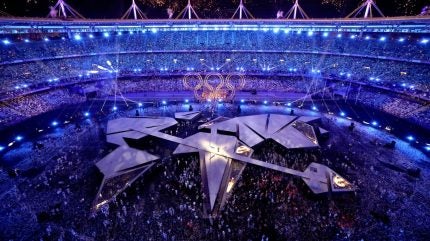
The Olympic Games are among the most significant and widely celebrated events globally, showcasing athletic ability and cultural pride. However, behind the spectacle lies a growing debate about their sustainability, both environmental and economic, as cities spend billions to host the games, and invest heavily in infrastructure projects, resulting in long-term problems.
The sustainability of the Olympic Games, over the long term, is a complex issue. The International Olympic Committee (IOC) is actively addressing some of the concerns through various initiatives, particularly under its Agenda 2020 framework. This agenda emphasises sustainability as one of its three key targets, aiming to integrate environmental considerations into the planning and execution of the games.
The economic sustainability of the Olympic Games relies on the ability of the hosting countries and the IOC to manage escalating costs, maximize revenue streams, and deliver long-term economic benefits. The games generate significant financial opportunities through sponsorship.
The most recent 2024 Paris Olympics secured over $2.54 billion from 89 partnerships, a large increase from $1.77 billion for the 2020 Tokyo games. Other substantial revenue comes from media broadcast rights deals and tourism. Even with increasing revenue from sponsorships, persistent cost overruns and uneven economic returns pose challenges.
Hosting the international multi-sport event is a costly endeavour, with budgets frequently exceeding initial projections by an average of 172% since 1960, excluding the 1984 Los Angeles games, which reused existing infrastructure. The 2016 Rio Olympics costs reached over $13 billion, around $4.4 billion more than originally planned.
Olympic budgets often fund long-term investments in infrastructure such as new or upgraded transportation and new or redeveloped stadiums. Stadiums for Brazil after the 2016 Rio games left financial challenges due to a lack of repurposing and costly maintenance demands.

US Tariffs are shifting - will you react or anticipate?
Don’t let policy changes catch you off guard. Stay proactive with real-time data and expert analysis.
By GlobalDataIn contrast, London 2012 Olympic Park became a thriving residential and commercial area, continuing to host events. These examples show the uncertainty and potentially high-risk investment of hosting the event and highlight the importance of repurposing facilities to generate revenue to cover maintenance costs.
Additionally, the games create an opportunity to elevate a city’s global image, fostering business, investment opportunities, and increasing tourism in the long term. A large proportion of the incentive of hosting the Olympics is the increased tourism during and after the event.
Successful games can see significant increases in tourism, leading to billions accumulated in GDP. Tourism stimulates short-term economic activity in hospitality, retail, and construction. Whereas long-term benefits occur when infrastructure and branding are leveraged effectively.
However, when not leveraged effectively, it can have little impact on long-term tourism numbers, leading to a non-significant effect on GDP. The problem can be dangerous when the country is relying on these increases, as often the International Olympic Committee can overstate the GDP impact for most hosts.





